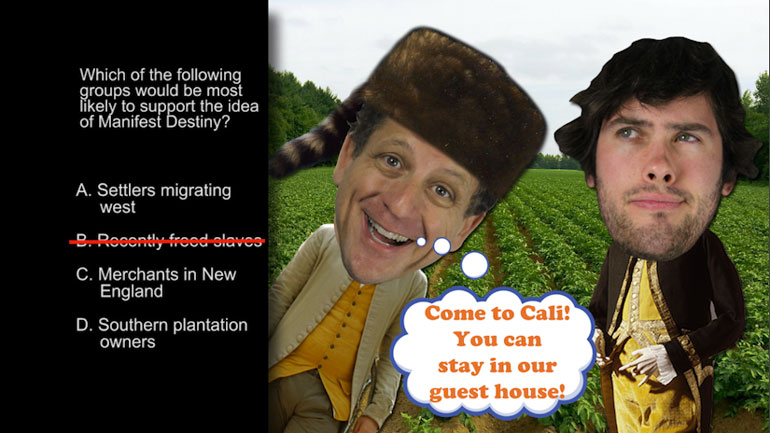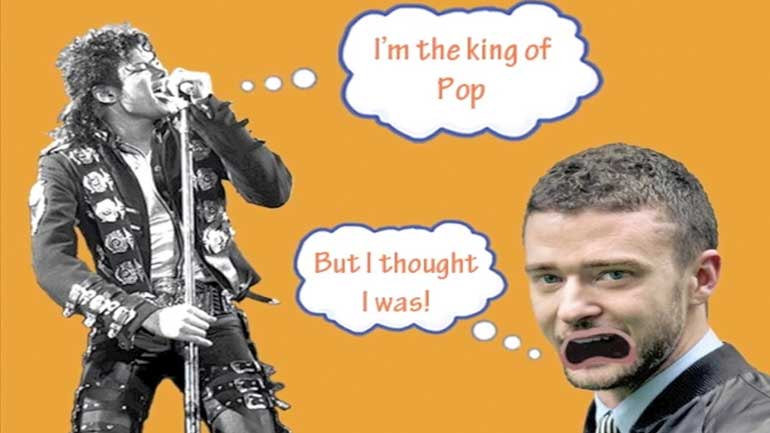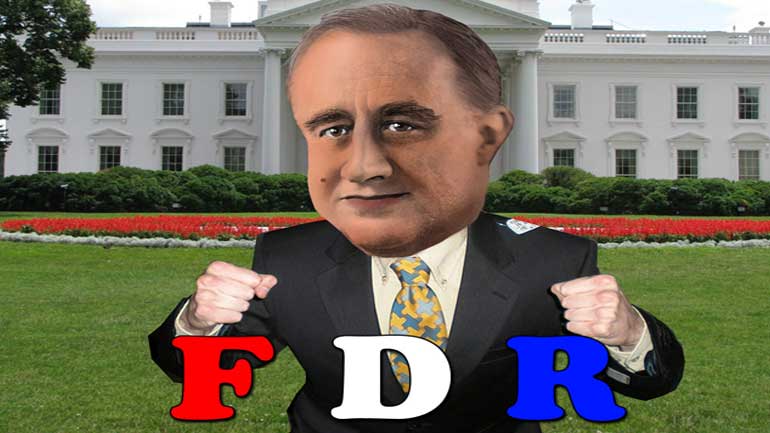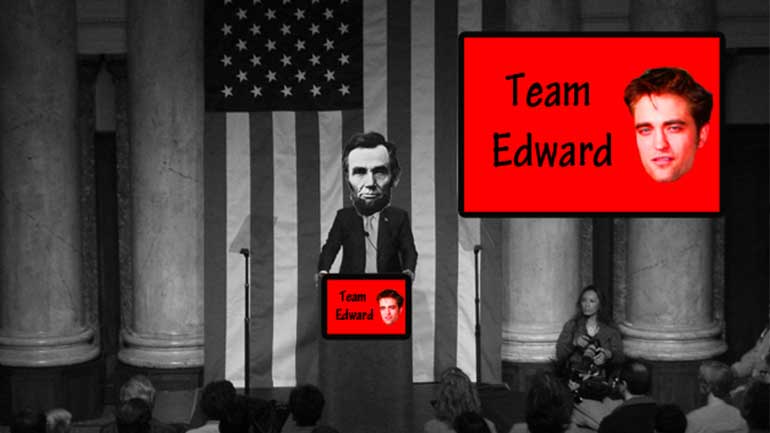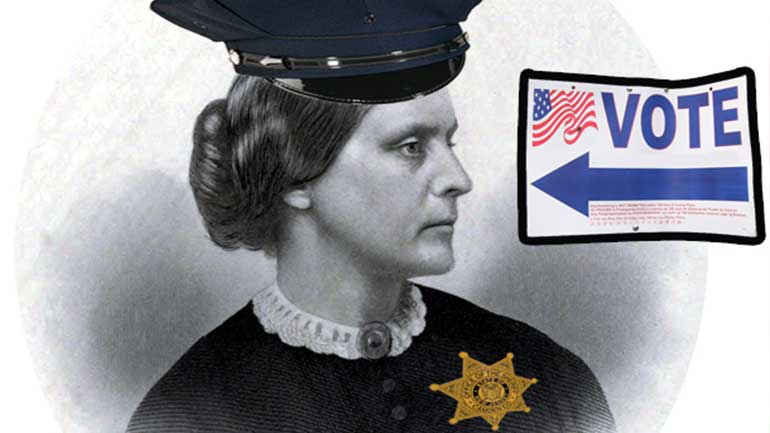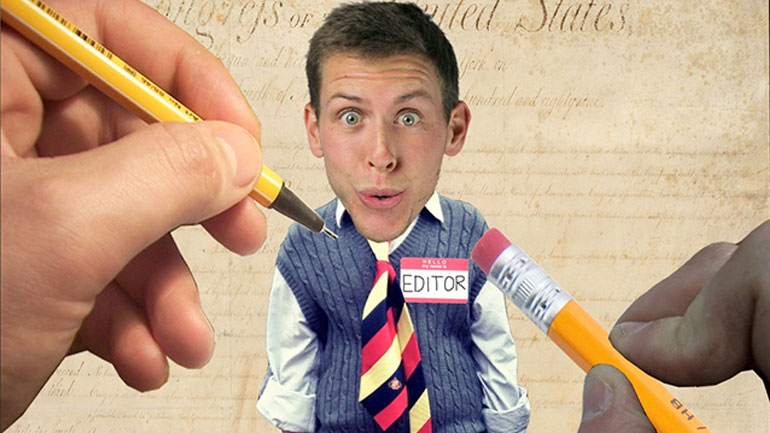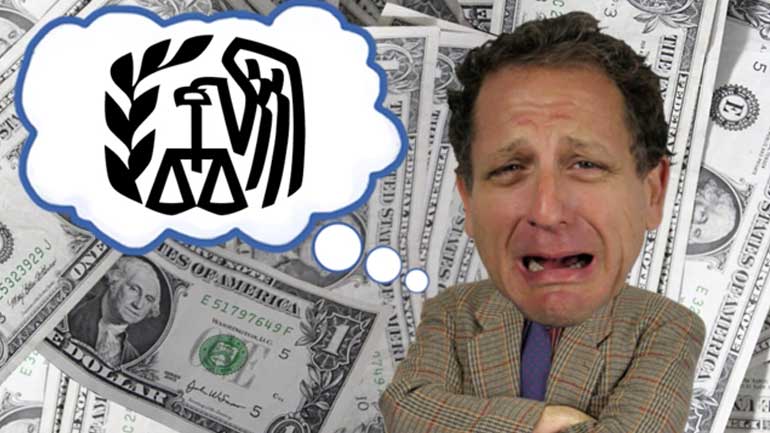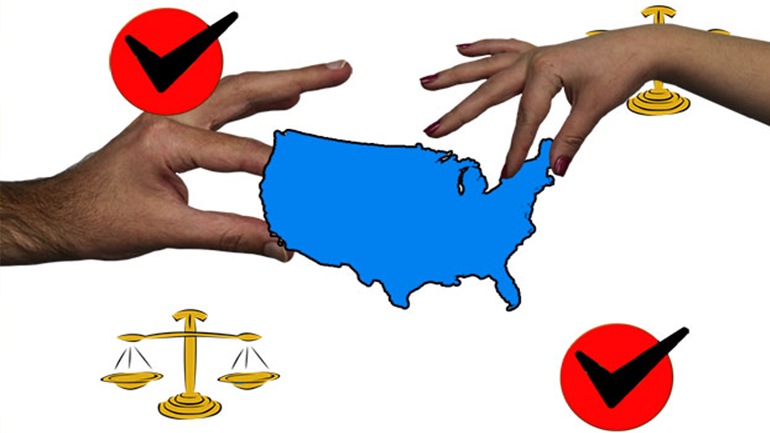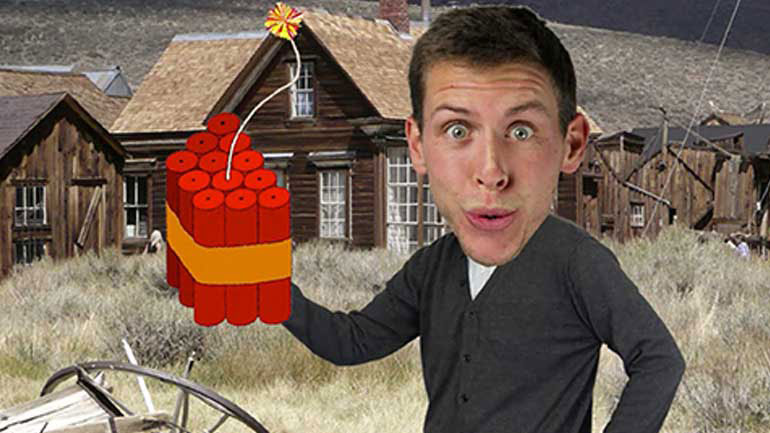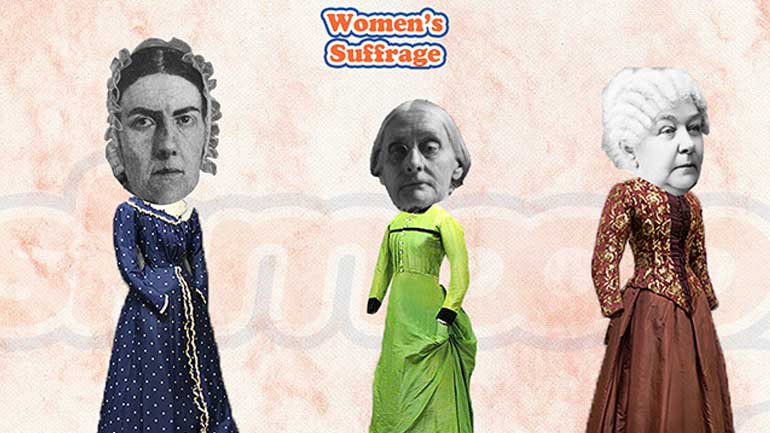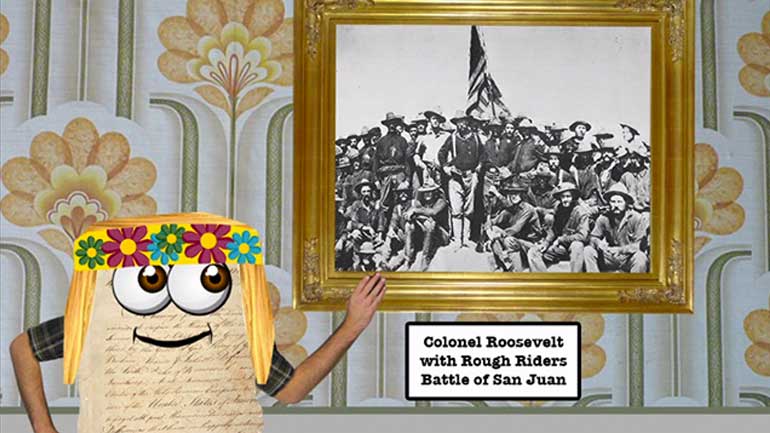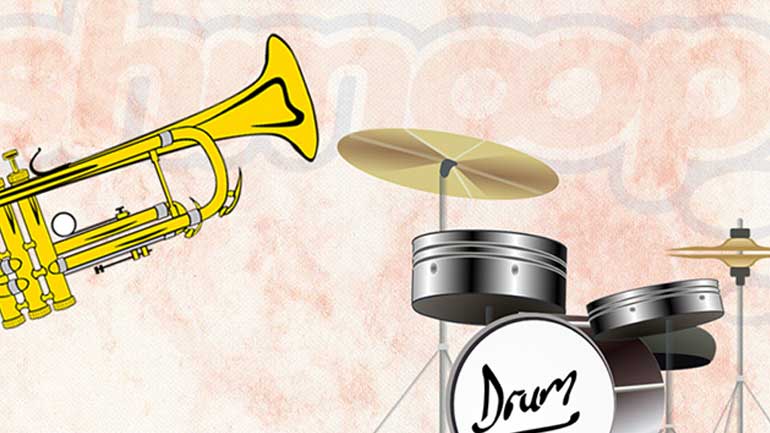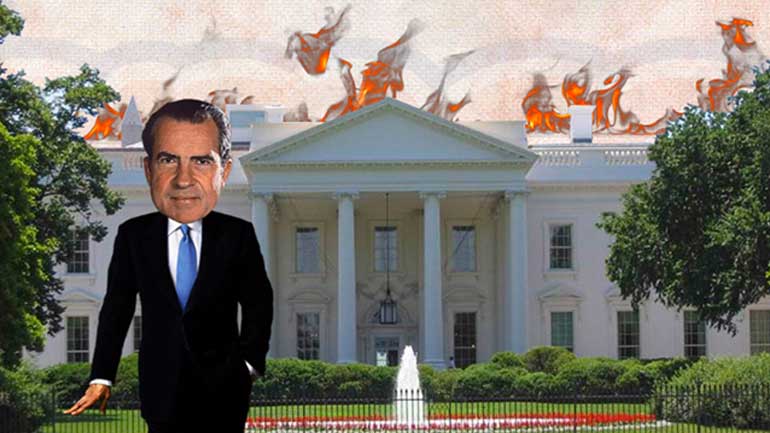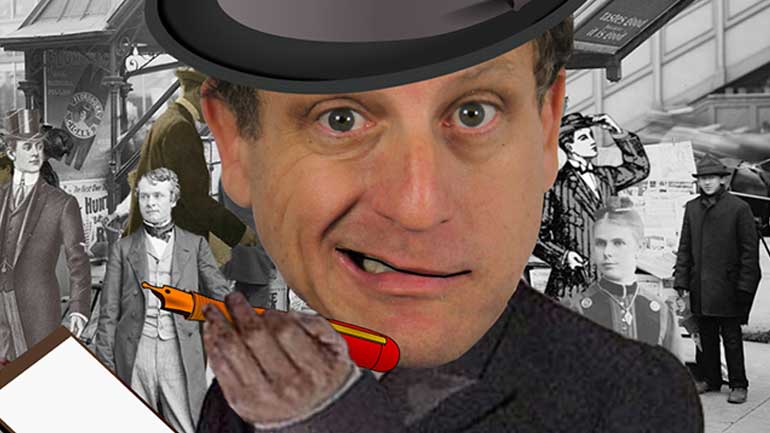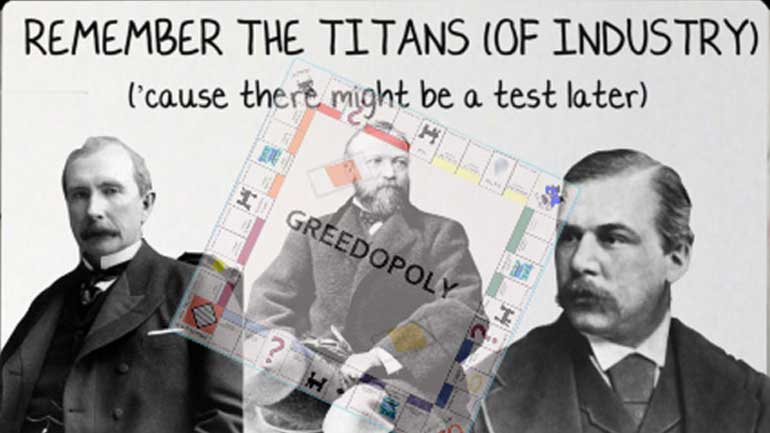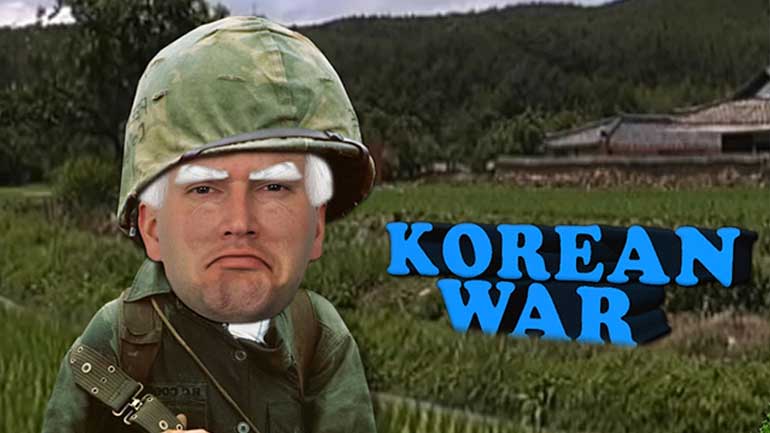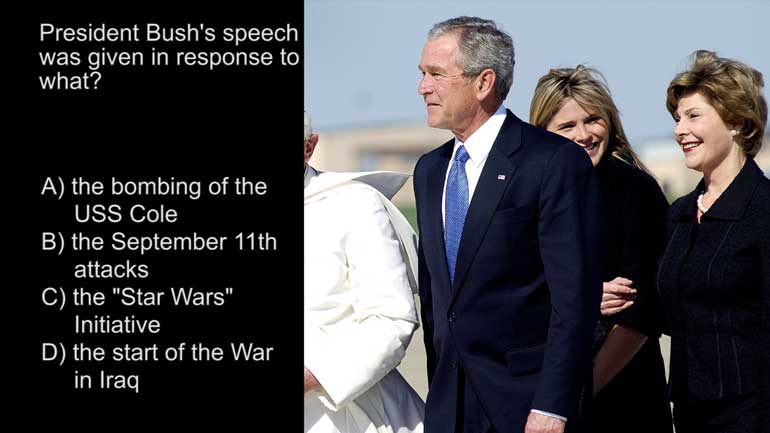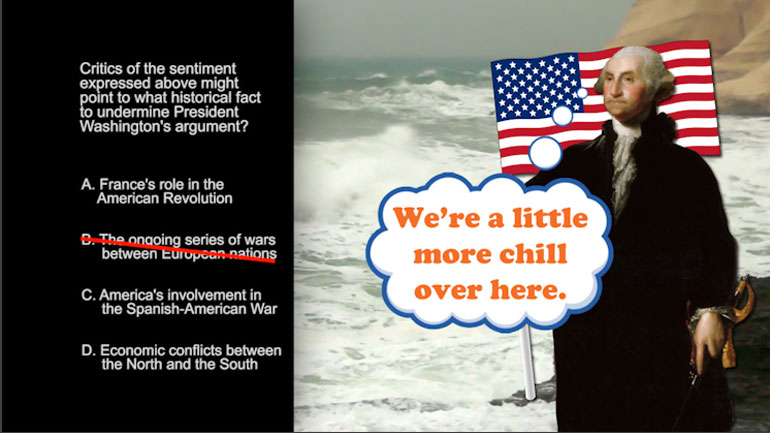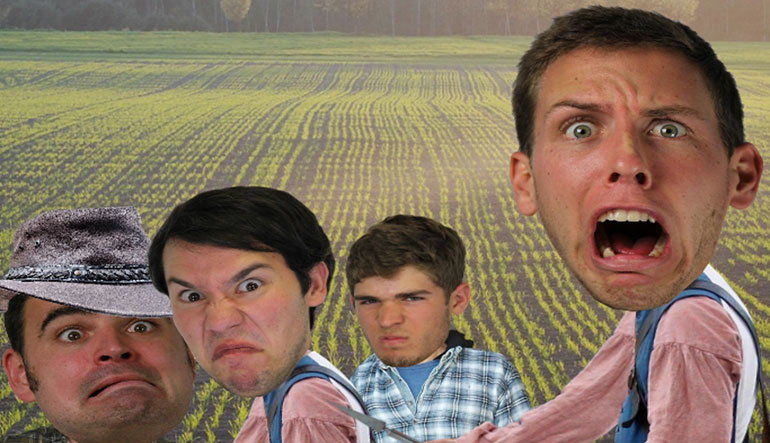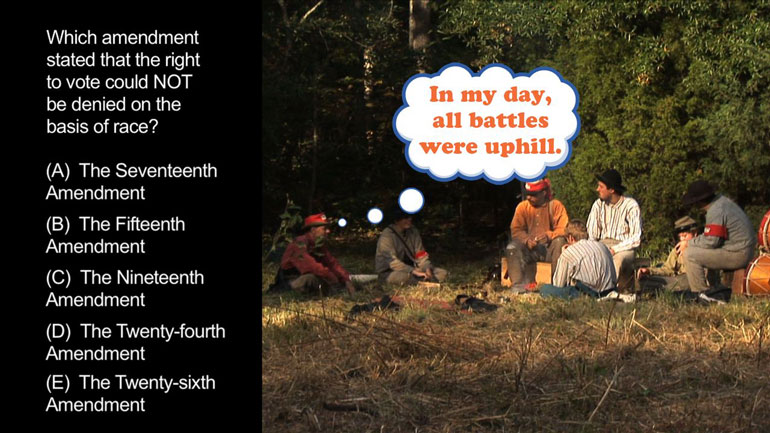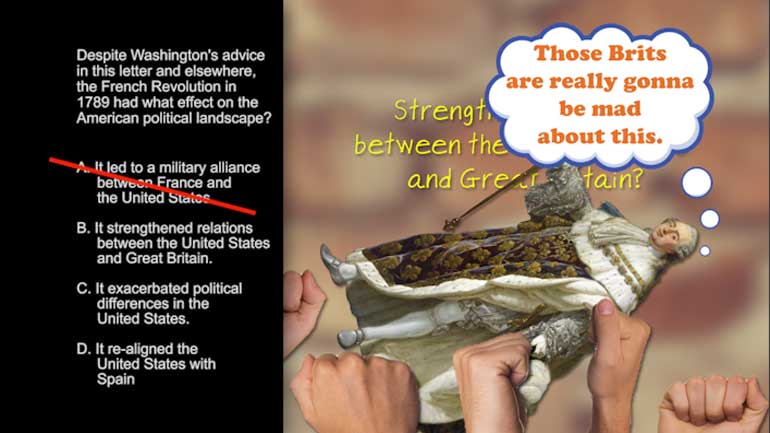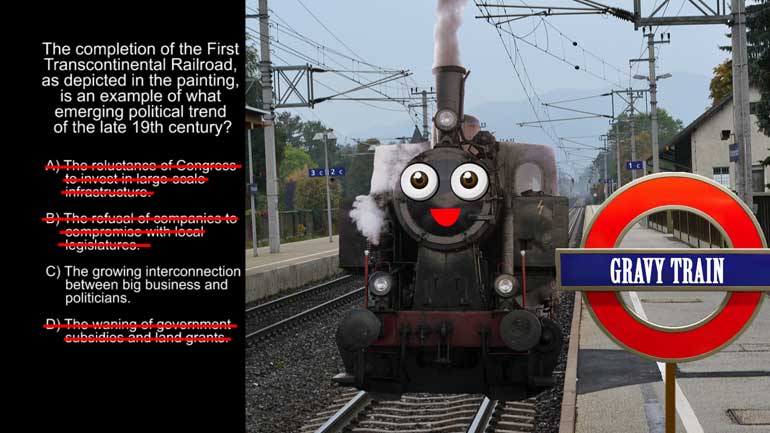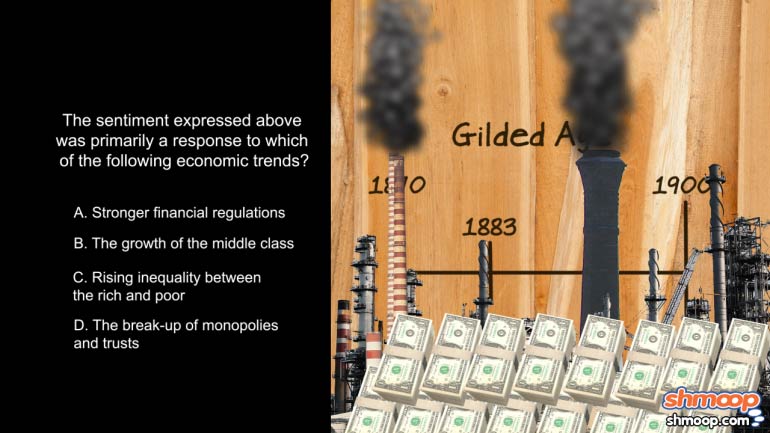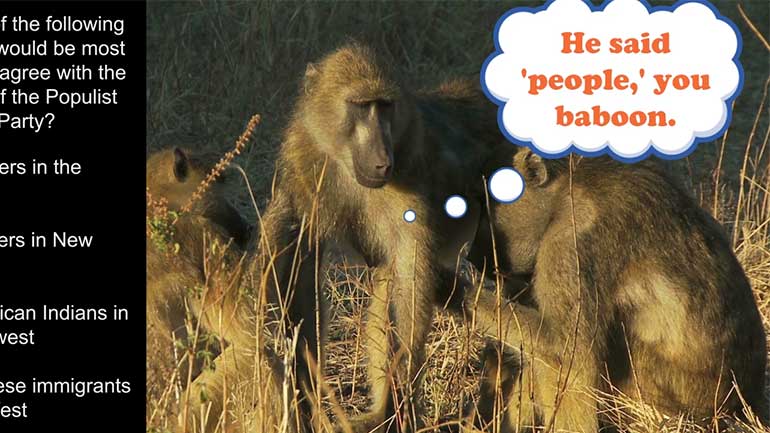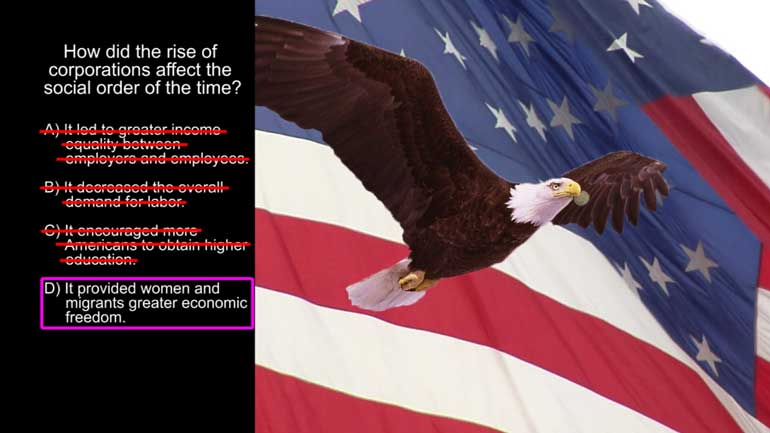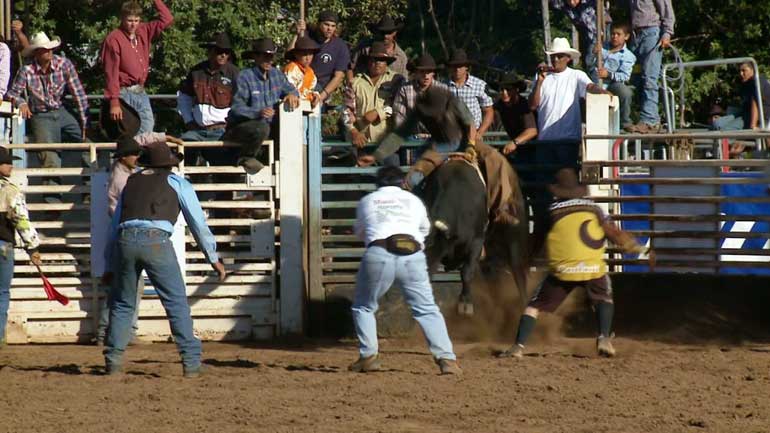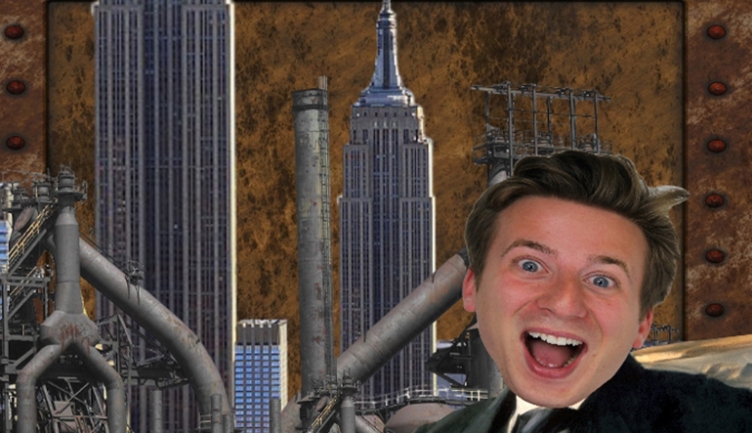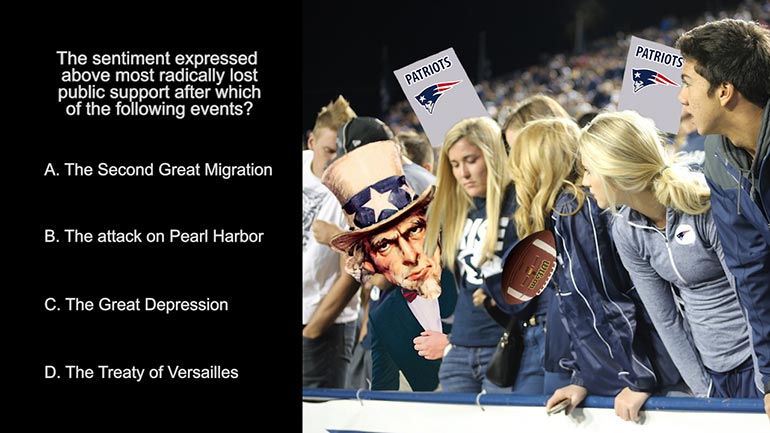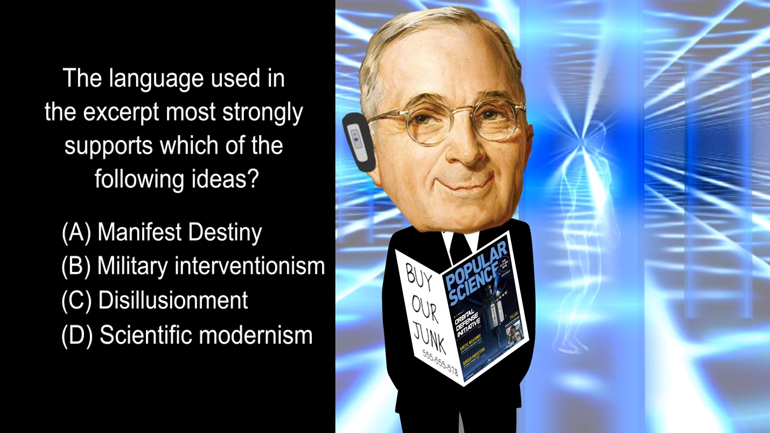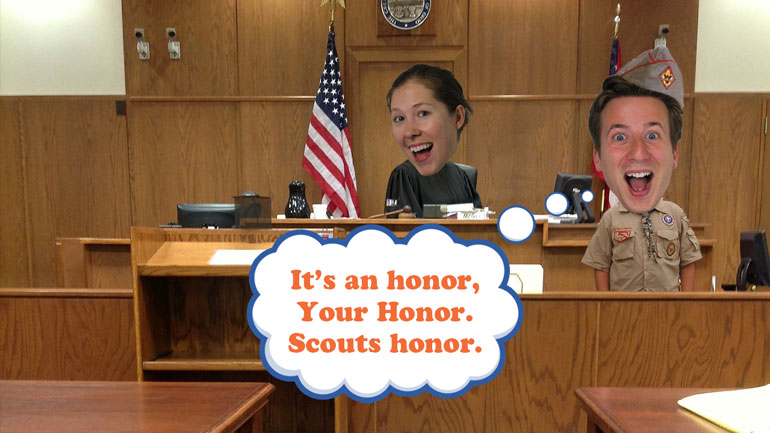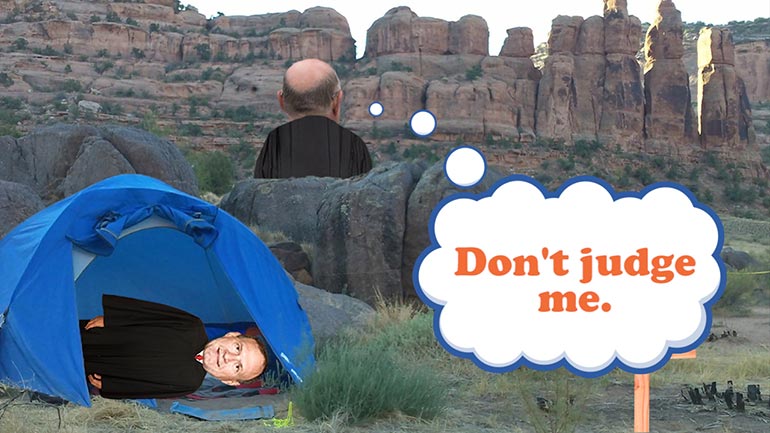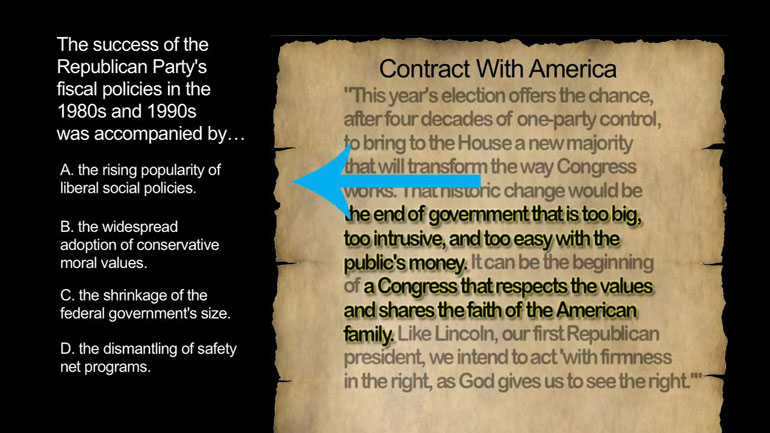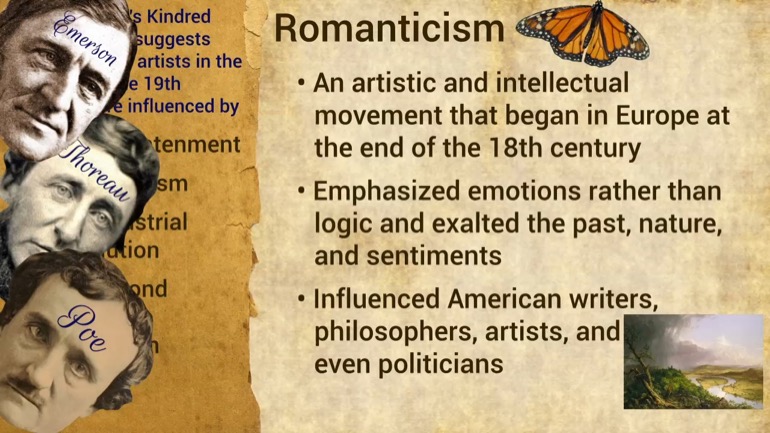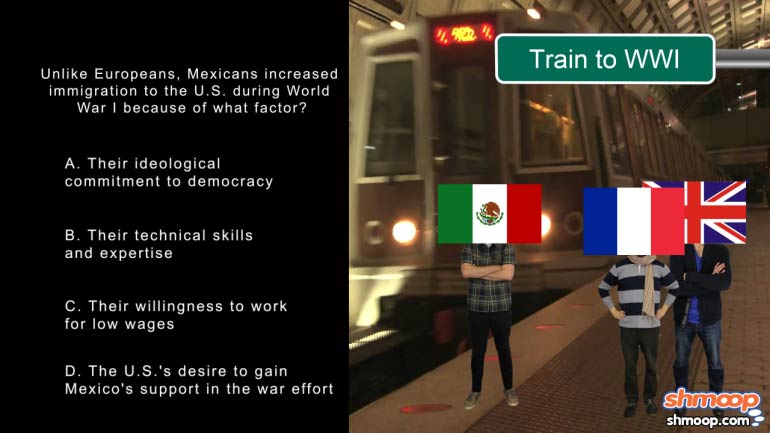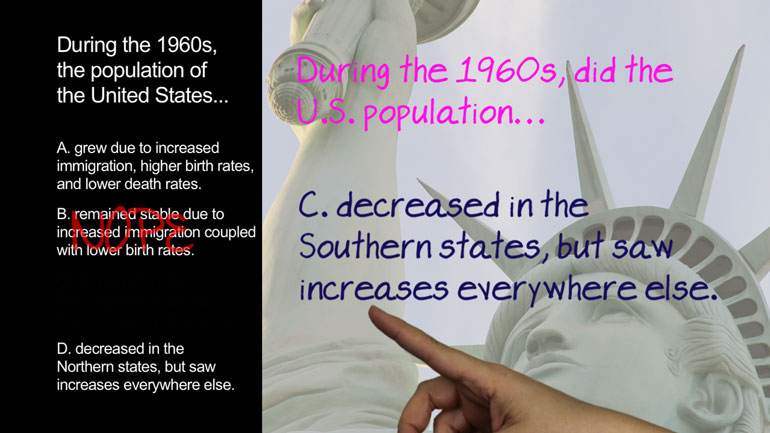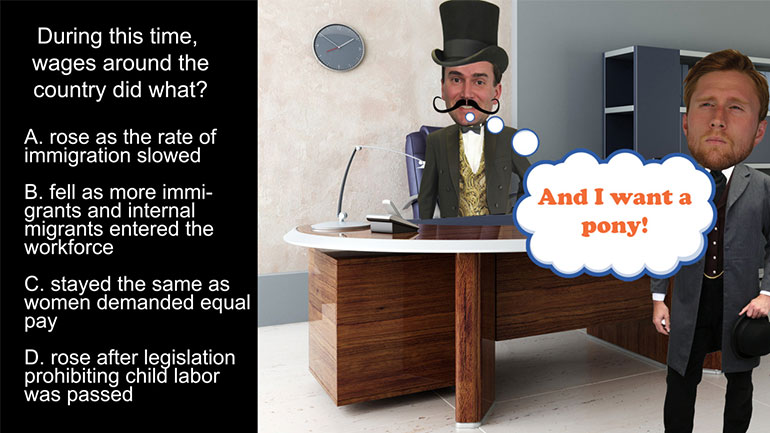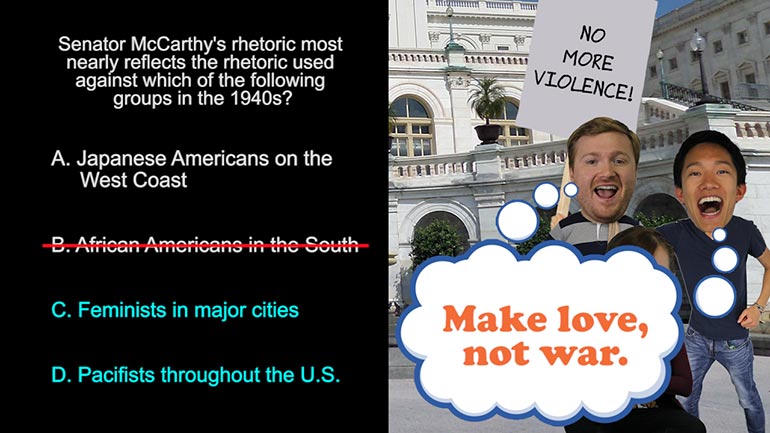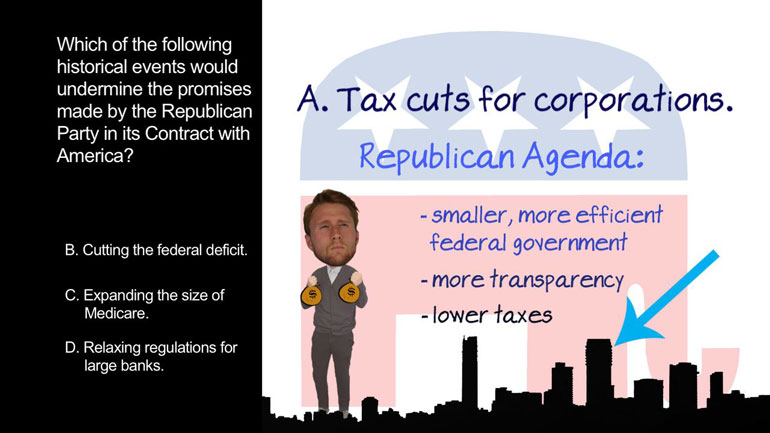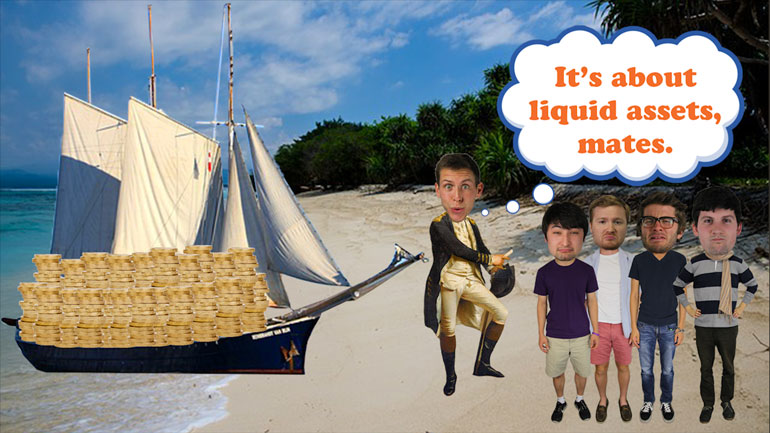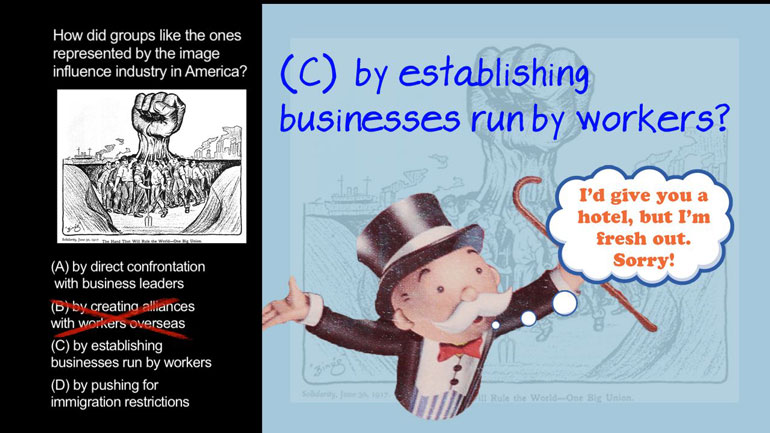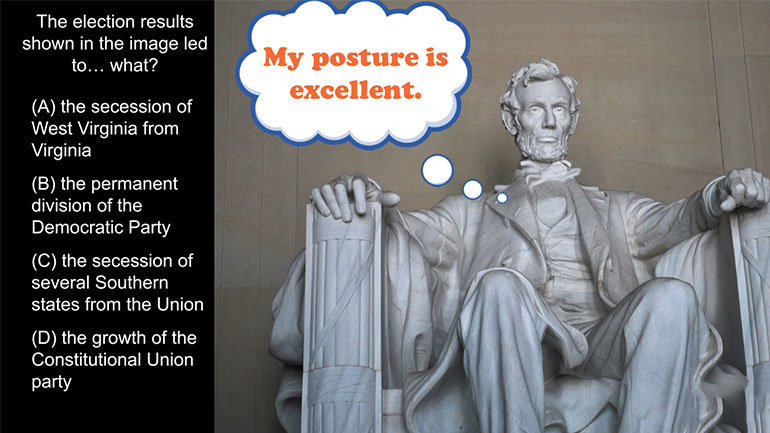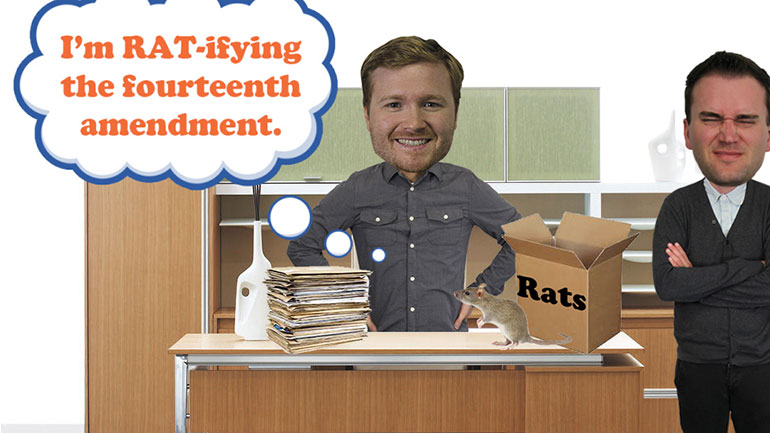ShmoopTube
Where Monty Python meets your 10th grade teacher.
Search Thousands of Shmoop Videos
U.S. History EOC Assessment Videos 64 videos
AP U.S. History 1.1 Period 5: 1848-1877. Which of the following groups would be most likely to support the idea of Manifest Destiny?
In the 1950s and 60s, people weren't just expressing their feelings toward the government—they were singing them, too. (Think Crosby, Stills, Nas...
Deal or no deal? FDR's New Deal provided hundreds of thousands of jobs in the public sector to bring the economy out of the Great Depression. It wa...
AP U.S. History 2.1 Period 9: 1980-Present 210 Views
Share It!
Description:
AP U.S. History 2.1 Period 9: 1980-Present. American farmers opposed to free trade agreements such as NAFTA would most likely agree with the beliefs of which of the following groups?
Transcript
- 00:00
[ musical flourish ]
- 00:04
And here's your Shmoop du jour, brought to you by a fair wage.
- 00:08
That's the salary workers earn at a carnival.
- 00:10
No? Fair? All right.
- 00:12
Check out the excerpt.
Full Transcript
- 00:13
[ mumbles ]
- 00:17
American farmers opposed to free trade agreements
- 00:20
such as NAFTA would most likely agree with the beliefs of which of the following groups?
- 00:25
And here are your potential answers. [ dog barks ]
- 00:27
All right. [ mumbles ]
- 00:30
[ mumbling continues ] All right.
- 00:33
Well, what do we know about NAFTA?
- 00:34
The excerpt shows that the North American Free Trade Act
- 00:37
led to increased trade among member nations and
- 00:41
higher business investment in the United States.
- 00:44
Sounds like good business...
- 00:45
for people who are in business.
- 00:47
So let's see which answer describes a group who,
- 00:50
like American farmers, weren't particularly interested in
- 00:52
buying what NAFTA was selling.
- 00:55
Would American farmers opposed to free trade agreements like NAFTA
- 00:58
have aligned with B - merchants in colonial New England?
- 01:02
Hmm. Well, merchants in colonial New England depended on international commerce
- 01:06
and foreign markets for their livelihood.
- 01:09
For that matter, so did industrialists in the 1920s.
- 01:12
So that takes out B and C.
- 01:14
Would American farmers opposed to free trade agreements have sided with D -
- 01:18
plantation owners in the 1850s?
- 01:21
Well, actually, American farmers opposed to free trade worried
- 01:24
that farmers in other countries could produce the same products
- 01:27
at much lower costs.
- 01:30
In the 1850s, the plantation owners
- 01:32
were those farmers in other countries
- 01:34
since their cost of labor was, well, nothing.
- 01:38
So it isn't D, either.
- 01:39
Which means that American farmers opposed to free trade agreements
- 01:42
would have most gelled with A - the Populist Party of the 1890s.
- 01:46
That's right. The Populist Party was all about representing
- 01:49
farmers and their interests,
- 01:51
fighting against corporate interests and policies that would benefit the elite.
- 01:56
So the correct answer is A.
- 01:57
American farmers worried that without tariffs or subsidies,
- 02:00
they'd be priced out of the global market.
- 02:03
No wonder they were feeling so croppy.
Related Videos
AP U.S. History Diagnostic 1. Relationships like the one shown in the image resulted in the development of...what?
AP U.S. History Diagnostic 15. How did groups like the ones represented by the image influence industry in America?
AP U.S. History Diagnostic 10. What led to the splintering of the political parties shown in the image?
AP U.S. History Diagnostic 11. The election results shown in the image led to...what?
AP U.S. History Diagnostic 12. How did the Reconstruction Acts open up political opportunities for former slaves?
